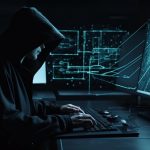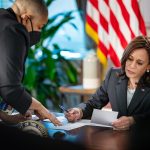A preliminary report on the lackluster performance of the Secret Service during the first assassination attempt against Donald Trump is raising eyebrows—and stirring up frustration among conservatives. The July 13 incident revealed just how unprepared the agency was in safeguarding one of America’s most controversial figures. This debacle showcased a shocking lapse in security, where a lone gunman managed to get a clear shot at Trump, resulting in a bullet grazing his ear, the tragic loss of a supporter named Corey Comperatore, and serious injuries to two others. One has to wonder: how could the Secret Service drop the ball this badly?
The Senate committee’s findings are reminiscent of a plot twist in a poorly written sitcom. Details emerged that an agent responsible for operating drone technology had only received one hour of training before being set loose in such a high-stakes environment. To top it off, when he found himself in over his head, he had the bright idea to call a toll-free hotline for help. It’s almost as if the Secret Service assumed they were hiring for a summer camp program instead of a security detail. The report highlighted a series of miscommunications and failures that turned the event into a perfect storm of incompetence—a comedy of errors if one could even bear to laugh.
Secret Service Agent's Stunning Call Seconds Before Attempt On Trump Is Revealed https://t.co/EyfptiVkcm FBI SS HLS CIA all in on it my guess…
— Allan M Paull (@chipin8511) September 25, 2024
The Secret Service, facing the heat, has promised to address these failures. Their spokesperson expressed that the weight of the mission isn’t lost on them, which raises the obvious question: what were they doing when it counted? The Secret Service’s previous standards seem to have taken a backseat, and while the agency claims it’s taking insights from the report seriously, the fact that the whole system allowed a shooter to scale a roof and get a shot off is mind-blowing. The competency levels of these agents seem to drop as fast as the President’s poll numbers after a bad news cycle.
Even more concerning was the revelation that counter-snipers on duty weren’t even informed of suspicious activity just 27 minutes before the attack. A local 20-year-old named Thomas Crooks, who seemed to have skipped the basic understanding of lawful behavior, managed to perch himself on a roof with a high-powered rifle while agents on the ground, even witnessing law enforcement rushing in with guns drawn, failed to react appropriately. The counter-sniper later sheepishly claimed that he never thought to raise the alarm. Let’s just say that when it comes to protecting the President, the Secret Service offered more of a “wait and see” approach than a proactive security strategy.
Historically, former presidents are entitled to enhanced protective measures based on credible threats. Maybe they should rethink that policy given that requests for additional drones and security personnel were flat-out ignored. It sounds as though the Secret Service could use a refresher in common sense. It’s no shock that the blame game is already in full swing, with acting director Robert Rowe at the center of the whirlpool—because nothing screams “competency” like deflecting responsibility in a crisis when lives are at stake.
The Secret Service has publicly stated that changes are underway, with plans to elevate protective operations and ensure that they won’t drop the ball again. However, one has to question if they truly understand the gravity of their missteps or if it’s merely lip service in response to public outrage. With the stakes being life or death, notably the life of a former president, one hopes they might start prioritizing real security over bureaucratic bumbling before the next crisis hits.




